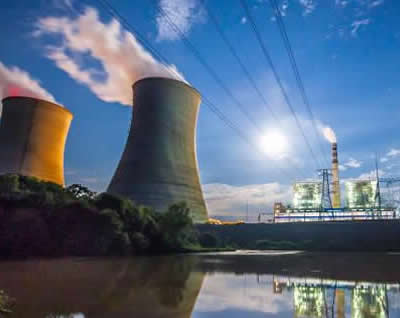Efforts to curb carbon emissions will have sweeping impacts on trade, but commerce should be seen as part of the solution, not the problem, according to experts at the COP23 climate summit.
"There is no mention of trade in the Paris Agreement. However, there is little doubt that the agreement and it parties' commitments - the so-called Nationally Determined Contributions - will mean big changes for their trading partners as the effects of those commitments start playing out in trade flows and trade policies around the world," UNCTAD's Deputy Secretary-General Isabelle Durant told a summit session in Bonn, Germany.
Nationally Determined Contributions are emissions-curbing pledges under the 2015 Paris Agreement on climate change, and 45% of them contain a trade element, according to research by the International Centre for Trade and Sustainable Development.
That is part of a wider trend of "greening up" the economy, underlined Aik Hoe Lim, Director of Trade and Environment at the World Trade Organization.
"We're looking at the green economy moving from something a bit niche to something mainstream," Mr. Lim said, adding that its value is estimated to hit US$12 trillion by 2020.
"There's a risk of some countries being left behind," he said. "So, the question is, how can you bring green and inclusive growth together? Here, trade can be very interesting. If you bring trade into the picture, you can even accelerate the transition."
The pivot to sustainable development has raised concerns that countries unwilling or unable to move as fast as their trading partners could be hit by so-called response measures to climate change - such as stiffer environmental benchmarks for goods - which critics say are tantamount to slapping market-skewing tariffs on imports. Diverging views among the trade and climate communities have stoked the debate, as well as worries about the impact on workers in carbon-heavy industries.
But UNCTAD, as the UN's voice on trade and development issues, is working to bridge the gaps.
"Trade is traditionally seen through the lens of a competitive relationship, but it has an enormous cooperation potential, too," said Ms. Durant. "Trade policy can no longer be reduced in practice to assigning the responsibility and deciding who should be protected against whom. And trade wars are no way to elicit co-operation needed in an era of value chains."
"Along with finance and technology, trade acts as an enabler, cutting across the various domains relevant to climate policy and sustainable development. The challenge is to change the approach from one of allocating or shifting burdens among countries through trade restrictive measures, to figuring out ways in which trade could help all countries share the benefits of transforming their economies."
The lack of a direct mention of trade in the Paris Agreement does not mean the issue was off the agenda. Negotiators agreed to continue addressing the economic and social impact of response measures, taking into account the special needs of developing countries.
"There is a very strong connection between trade and the impact of response measures. We're always cognizant of the fact that in order for us to address climate change there will be some spillover of climate change response measures on trade and on developing countries," said Saudi negotiator Ayman Shasly, International Policies Adviser at the Ministry of Energy, Industry and Mineral Resources.
Notably, countries created the UN Framework Convention on Climate Change's Forum on Response Measures, which in 2016 produced a three-year roadmap focusing on "economic diversification" and on "a just transition of the workforce and the creation of decent work and quality jobs".
"If we have a just transition, we think society will buy in to faster and deeper change," said Andrei Marcu, Senior Fellow at the International Centre for Trade and Sustainable Development.
A key issue surrounding response measures is that the trading system increasingly is used to make goods, not just to sell goods. That means not only that the emissions count of a final product needs to assess data from across the value chain, but also that climate action by one player can ripple across the system.
"Approaches based on value chains are increasingly recognized as a primary mechanism for meeting combined economic diversification and climate policy objectives," said Ms. Durant.
A variety of business models are being tested already: promoting circular supply-chains, extending the working lifecycle of products and components, and sharing production platforms to enable increased utilization rate of products, among others.
"We feel these practical approaches may prove instrumental in unpacking and de-politicizing the issues. However, the politics have yet to catch up as policy strives to master the implications of value chains. And there is a need to understand better their economic, social and environmental dimensions," said Ms. Durant.



